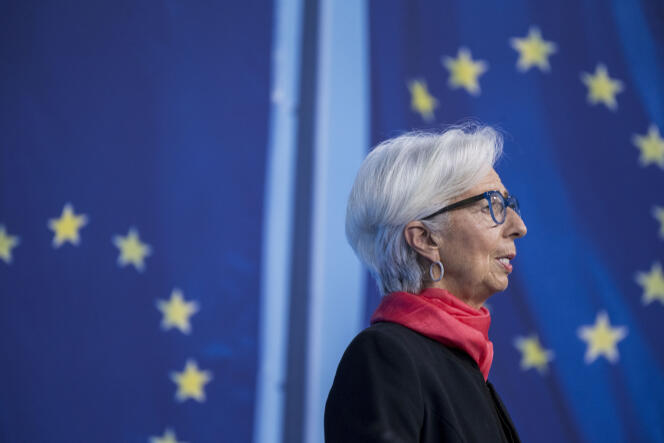
In the space of a few minutes, Tuesday, January 11, the German ten-year bond rate (- 0.02%) almost turned positive again. The symbolic zero mark has not been crossed, but it is undoubtedly a matter of days. When that happens, it will be the end of a two-and-a-half-year cycle of negative rates that began in May 2019. Since the start of December 2021, the German rate has risen by almost 0.4%. The trend is the same everywhere in Europe. In France, ten-year bonds are now at 0.3%, the highest since May 2019, while they reached 1.2% in Italy, a record since May 2020. Gradually, the negative rate parenthesis is closing. .
With inflation of 5% in the euro zone and 7% in the United States, the markets are anticipating interest rate hikes. In the United States, the Federal Reserve (Fed) could increase its key rate in the coming months, and analysts are betting on at least three increases in 2022. The European Central Bank (ECB) is not at the same point: an increase this year is “Very unlikely”, warned Christine Lagarde, its president. But the Frankfurt institution has started a gradual withdrawal of its intervention program on the markets: from 70 billion euros injected per month currently, it must in principle increase to 20 billion per month from October.
The trend is therefore massive: interest rates will rise. This poses two main problems: a risk, potentially close, of a violent stock market fall; another, relatively contained, on the sustainability of public debt. The Banque de France sounded the alarm signal on Monday January 10: “Some market valuation indicators point to a persistent level of exuberance, which makes risky asset markets vulnerable to a sharp correction. “ The institution emphasizes the strangeness of the stock market situation. Even though European economies have not yet returned to their pre-Covid-19 pandemic level, the markets are soaring. The CAC 40 gained 29% in 2021.
Fragility of hedge funds
Stock market valuations (the ratio of the share price to earnings, corrected for the economic cycle) now reach levels known only before the major crises: they “Have exceeded [celles de] 2008, both in France and in the United States, and approaching across the Atlantic the peaks affected before the bursting of the Internet bubble [de 2001] “, notes the Banque de France. However, these valuations come directly from low interest rates, which push investors to seek higher returns on risky products, in particular equities. If they rise, valuations are bound to fall.
You have 36.68% of this article to read. The rest is for subscribers only.